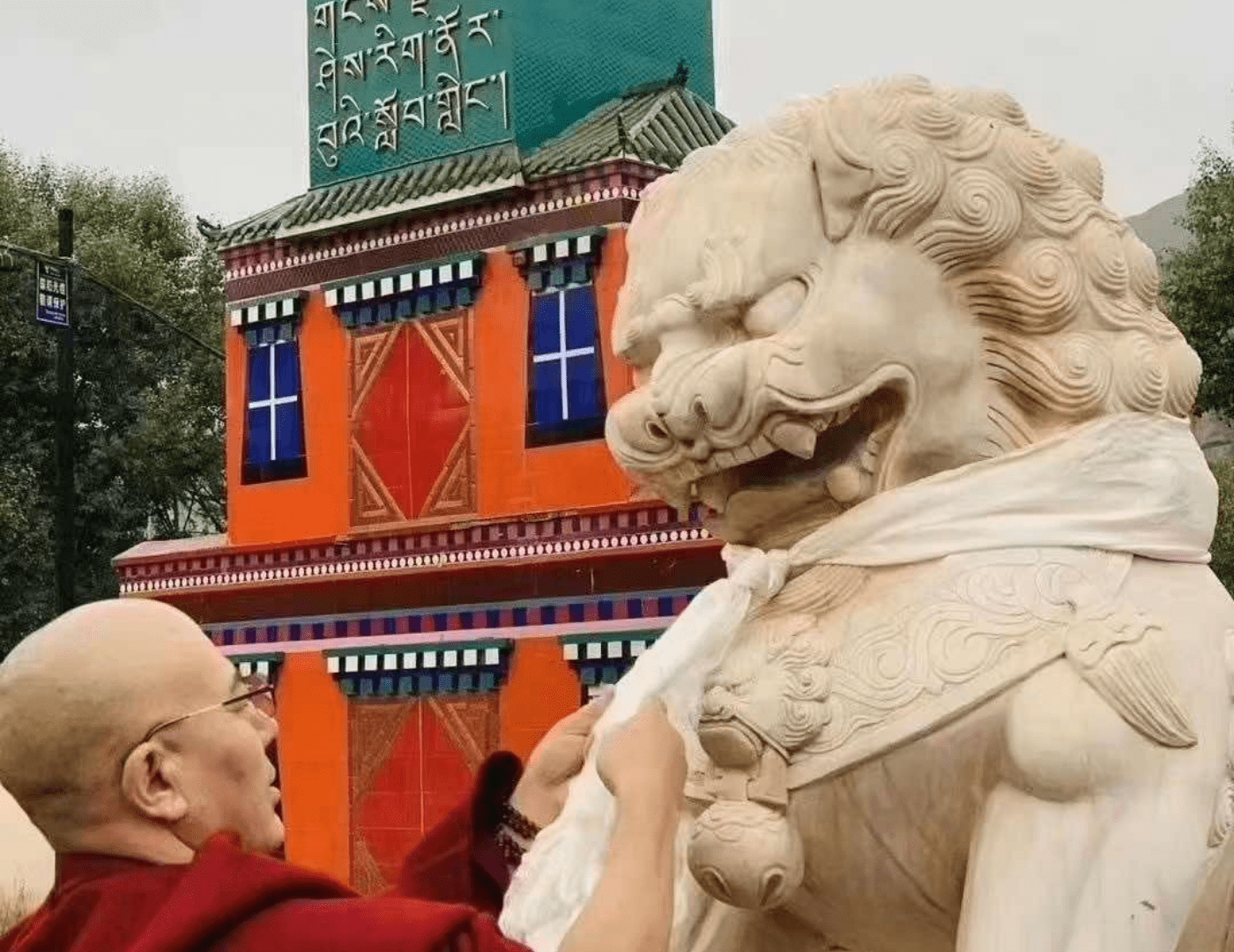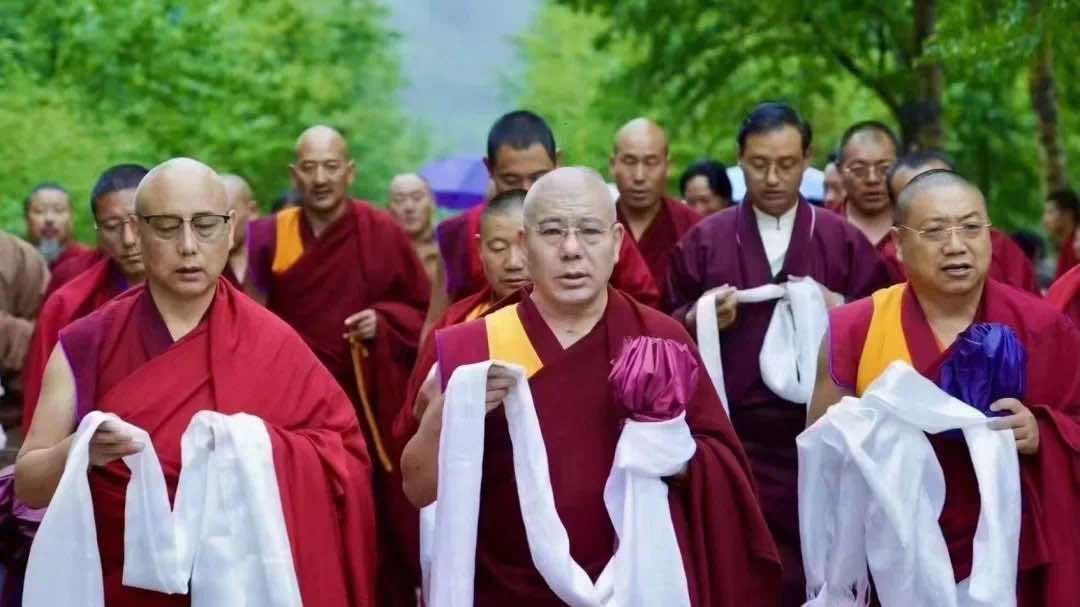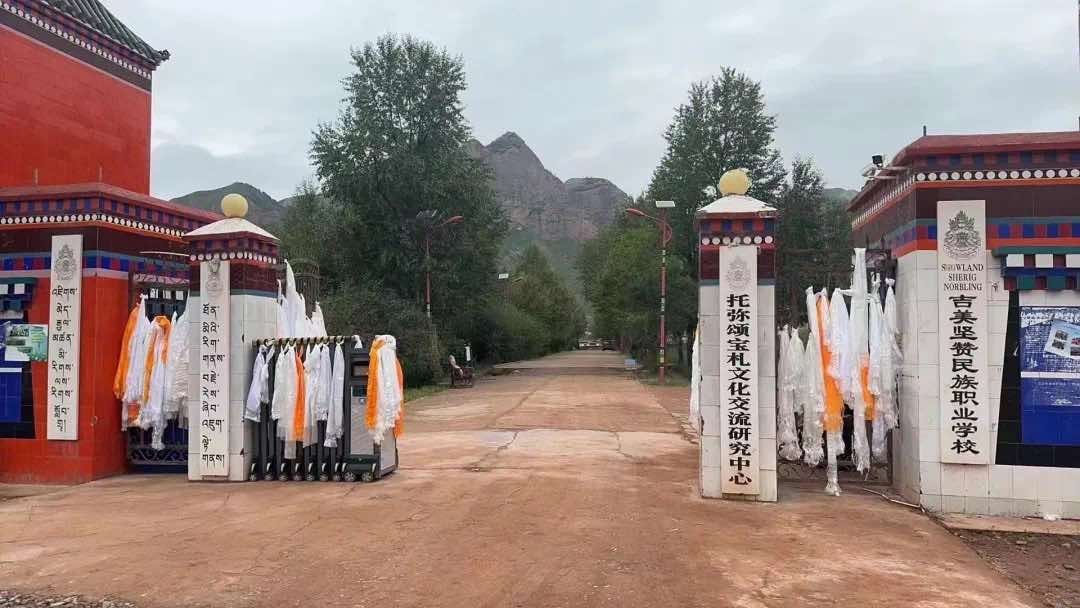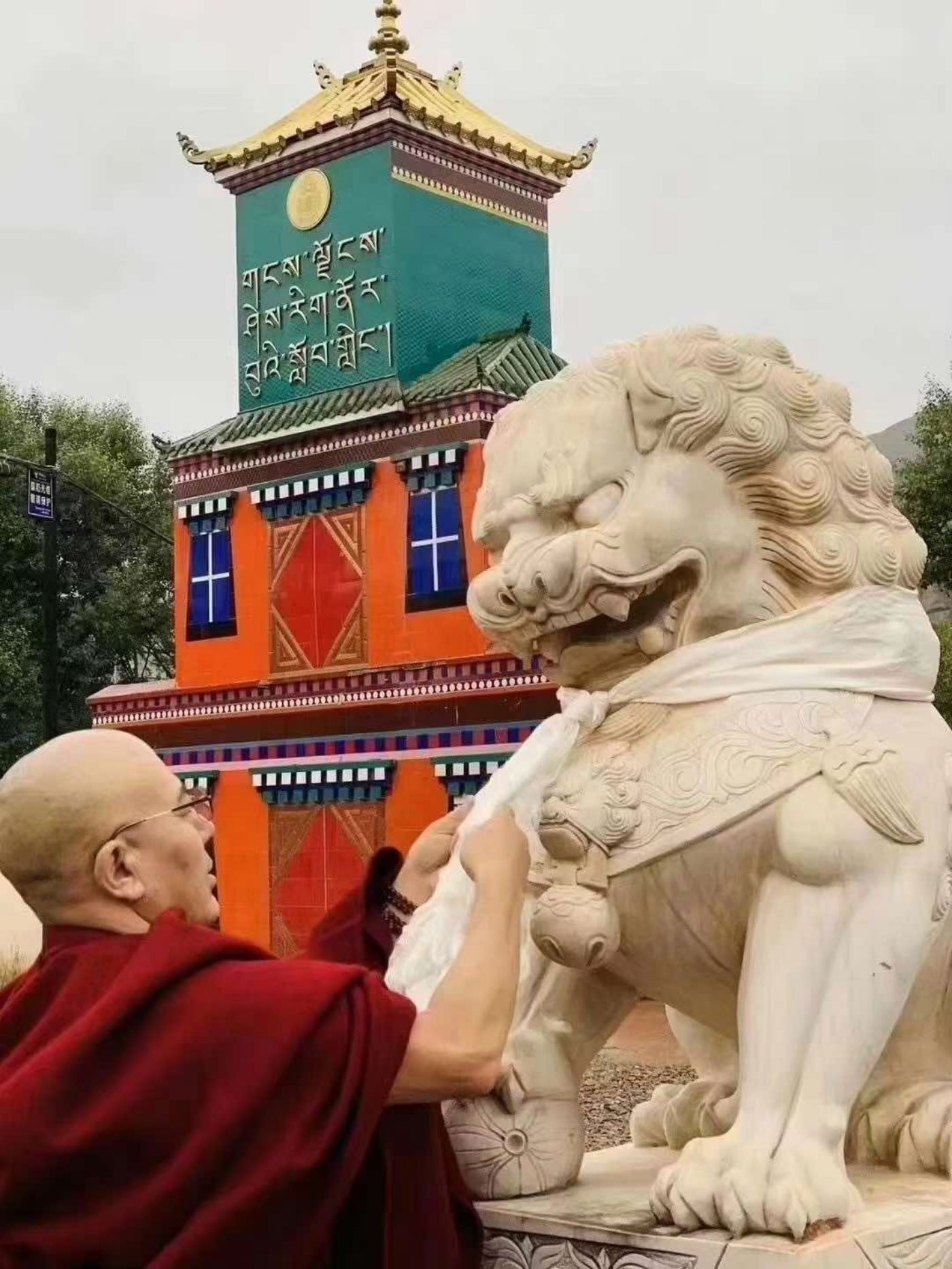
Another top Tibetan school forced to shut
Staff and students in despair as Ragya Gangjong Sherig Norbu Ling shut down after thirty years of success
Another acclaimed Tibetan school formally closed last week under orders from party secretaries at the highest level in eastern Tibet.
The school, Ragya Gangjong Sherig Norbu Ling, received a written notice for shutdown on 12 April. A source said that this was due on the orders of the Party Secretaries of Golog Prefecture and Qinghai Province. Prior to the shutdown, local authorities had issued the school’s founder with an ultimatum to either hand control of the school to the Chinese government or see it closed down.
Around 18 authorities representing Qinghai Province, Golog Prefecture and Machen County carried out investigations at the school on its closing day, searching for monks and nuns under the age of 18, and threatening the school staff with punishment, including fines if they concealed anyone.
Ragya Gangjong Sherig Norbu Ling school is amongst a group of Tibetan-medium schools in Golog, eastern Tibet, that Tibet Watch learned in December 2021 of having been warned with shutdown for teaching in Tibetan. This followed the forced closure of another renowned Tibetan school in the same region in July 2021.

Leading staff of Ragya school with their farewell khata on school closure day. From left to right: Tsultrim Gyatso, Jigme Gyaltsen, and Dhong Yonten Gyatso
What would have been otherwise a graduation day before the school reopens in fall saw staff and students gather in anguish – instead of celebrations – to observe the closure of their school. In a photo shared on WeChat, the founder of the school, Jigme Gyaltsen, a senior Buddhist monk and educator, can be seen offering a khata, a Tibetan ceremonial scarf, as farewell onto a snow lion statue that flanked the entrance gate of the school.
Following widespread concern, Jigme issued a social media post a day later clarifying that the school closure was not caused by individuals exercising arbitrary power, nor by favoritism or under coercion by any institution. He added that the decision was taken on the basis of national technical and vocational school standards and the spirit of relevant documents of Qinghai Provincial Committee.
However, Tibet Watch learned from a source that the school founder was caught in a double bind, which ultimately meant the end of the school they knew; Jigme had to either hand over the school ownership to the party-state, or choose to shut it down. He was not provided with alternatives that would have helped the school meet national standards where it was apparently deemed lacking.
One alumnus of the school posted on his social media account: “Good talk or bad talk, the school surely was forcibly closed! It isn’t that it suddenly happened. Instead [the school] has been squeezed and suppressed in the past years and finally made breathless.”
The school, its students and founder all underwent numerous legal challenges. After securing approval from the Golog prefecture government on 14 April 2001 to convert to a special high school, it changed its name in the following year from Jigme Gyaltsen Private School to Jigme Gyaltsen Phende School. Then, despite being officially selected in 2003 by Qinghai Civil Affairs Department as one of the top organisations contributing to public welfare, on 7 March 2006, the National Association of Vocational Education in China converted it into Qinghai Experimental School.
In 2018, when community-led language preservation groups in Tibet were declared illegal as part of a new nation-wide campaign against “underworld forces”, a group of students of Ragya who founded the Pure Native Language Association was taken to court by the authorities. The group was accused of having motifs of wish-fulfilling jewel and the snow lion in their logo, symbols that form the centre of the Tibetan national flag.
Jigme was also targeted with accusations of corruption, allegations of which he was later absolved in court., He shared the details in a post on his WeChat background published several days before the school shutdown on 28 June.

Farewell khatas at the entrance gate of Ragya Gangjong Sherig Norbu Ling after its forced closure
Since its establishment 30 years ago, Ragya Gangjong Sherig Norbu Ling has seen at least 2,300 students graduate, of which several hundreds have undertaken influential roles serving the Tibetan society through government and monastic service, research, medical and teaching professions. Numerous alumni are nowadays writers publishing in Tibetan, and hundreds other employed in various specialised professions.
According to documents related to the school published on social media accounts in Tibet, the school, led by its Director Jigme Gyaltsen, Professor Tsultrim Gyatso, Sherab Tendar and Dhong Yonten Gyatso, had almost 1,400 students, 58 other teachers and staff, and offered seven specialised classes: Tibetan language, English language, Computer, Engineering, Medicine, Videography and Physical Education. Arrangements for all the students and staff to enroll in the Golog Technical and Vocational School had been made, according to a clarification notice published by the founder on 14 July.
Since its closure, there has been an outpouring of elegies on social media.
In a message of heart-felt reassurance posted on WeChat on 14 July, Jigme Gyaltsen, requested everyone to not despair and remember the Buddhist philosophy of impermanence:
“Impermanence is indeed impermanence. What disintegrates moment to moment, ceasing to exist, is the nature of impermanence that cannot be reversed. As we accept rebirth and the unbroken succession of rebirths, why not pray for education of the next life? If the dead cannot be resurrected, what good is it to cry and lament? It is better to pray to be reborn with an excellent and fortunate body in the next life. This is the best course of action. So, please, I request you all not to be sad and continue to shoulder your own responsibilities.”

Founder of Ragya school Jigme Gyaltsen offering a farewell khata onto a snow lion at the entrance gate
The closure of Ragya school comes as yet another example of China’s assimilationist strategy under the so-called bilingual education system, which in practice gives ground to Mandarin teaching at the expense of Tibetan. The policy has met opposition, such as protests by students in the Tibetan region of Amdo in their hundreds in 2010.
Nearly a decade on, in 2021, a series of new education reforms were introduced in China which, for Tibetans, further marginalised all alternative entities – individuals and institutions- that provided schooling in Tibetan based on their culture: Private Education Promotion Law, which provided regulations for ownership and operation of all private schools; ‘Double Reduction’, a policy that outlawed off-campus tutoring to alleviate students’ homework load; and Children’s Language and Homophone plan for Mandarin Education, which emphasised teaching of Mandarin Chinese for all preschool children, including in ethnic and rural areas.
Information supplied by Tibet Watch

